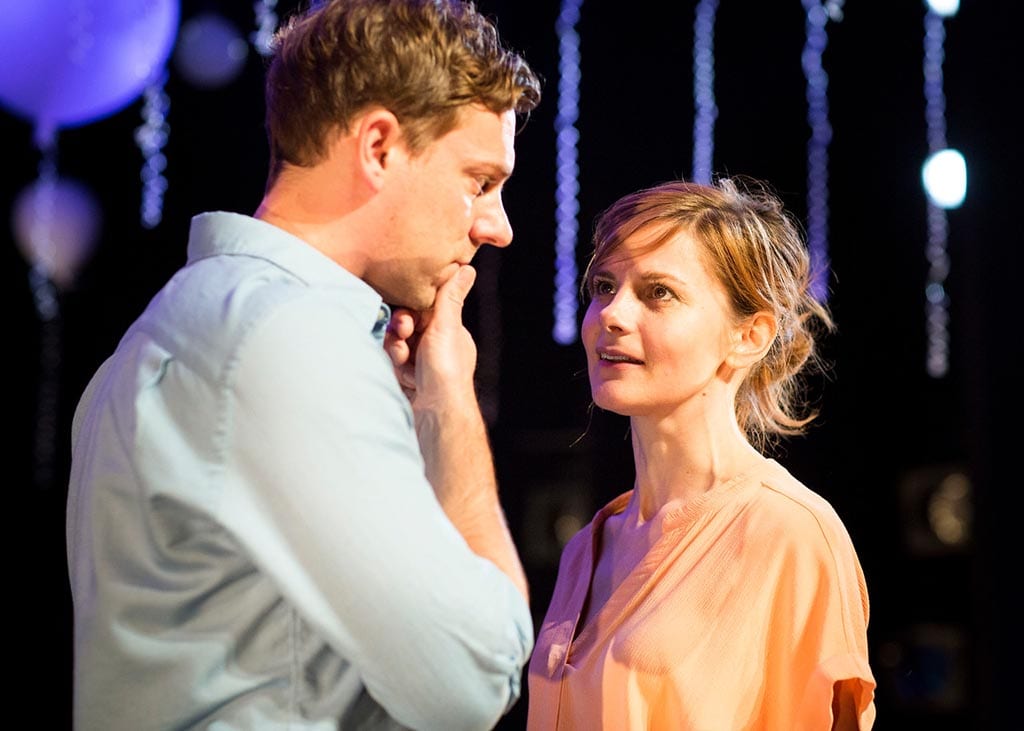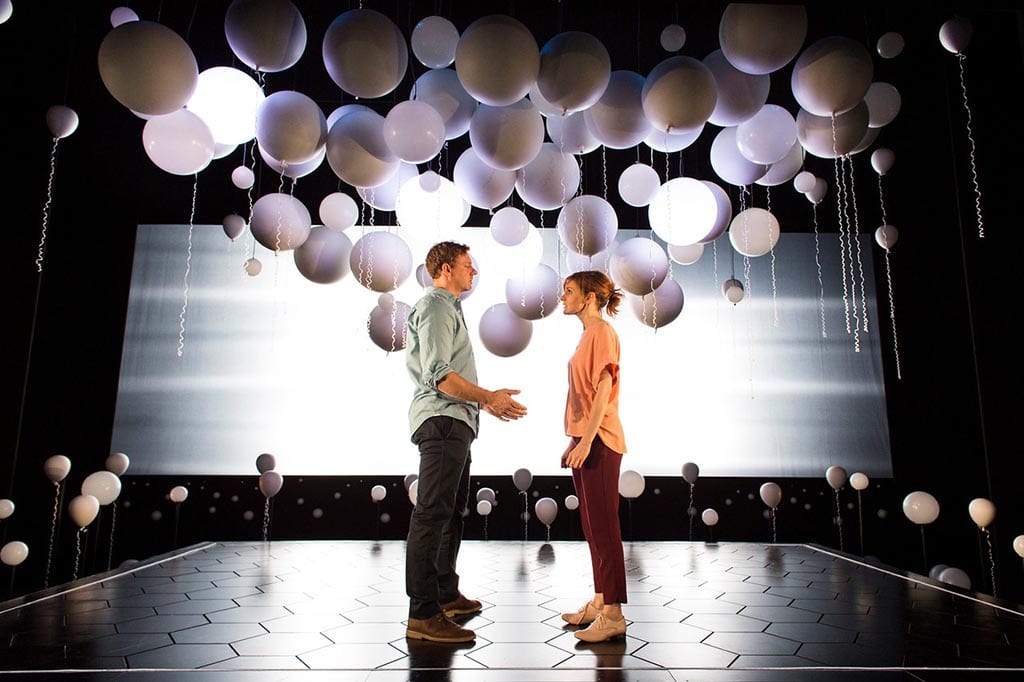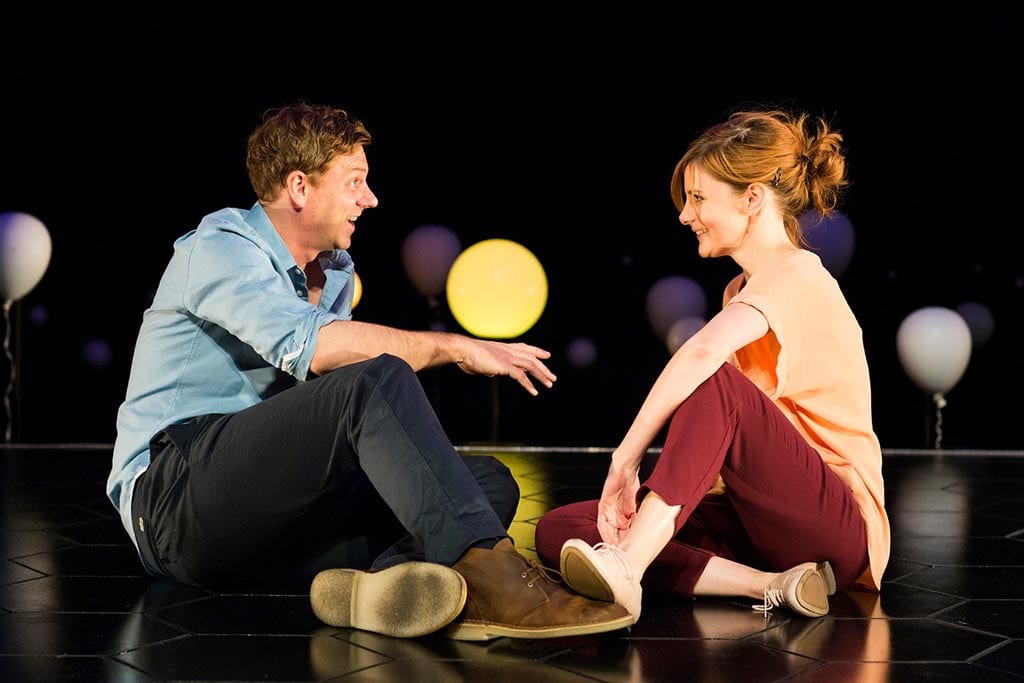For all of the seventy minutes of Michael Longhurst’s excellent production of Nick Payne’s Constellations time, tone, and human experience become delineated. A seemingly infinite temporal potentiality is contained within a series of scenes exploring the fluctuating relationship between Roland (Joe Armstrong) and Marianne (Louise Brealey).
It certainly is a play of great and many dimensions. All aspects of the production – lighting, acting, direction – contribute to the swift and seamless movement between possible plains of experience. Lee Curran’s lighting design achieves the difficult feat of creating theatrical spots of time, which move the characters and the audience into unknown and disorientating temporal spaces, whilst Lucy Cullingford’s movement direction subtly yet significantly draws our attention to the staccato rhythm of the play.
Armstrong and Brealey give outstanding performances as the two protagonists, carefully negotiating the tragicomic tone of this scientifically underpinned drama. Brealey, in particular, provides a masterclass in verbal and physical discipline, concentration and control.
In Jorge Luis Borges’s short story Garden of the Forking Paths, time is approached not as an absolute, but rather in terms of ‘an infinite series of times […], a growing dizzying net of divergent, convergent and parallel times.’ In Payne’s challenging play, events and scenes are distorted and yet this temporal confusion is interestingly offset by the precise design and direction. The effect is that as an audience we are constantly asked to refocus and resituate ourselves temporally and tonally.
Ordinary perspective does not exist in this play and consequently we must adapt. Longhurst’s production privileges most of the audience with a bird’s-eye view of the honeycomb pattern which covers the floor. Everyone, however, has full view of the symbolic balloons, the implicit particles, which surround and loom over the stage.
The production succeeds in making us see life, and the way in which we live it, in a different and restorative way. It distances us from a trivialized reality, forcing us to atomize, and to appreciate our (potentially) multi-dimensional existence. It is a theatrical lesson.



